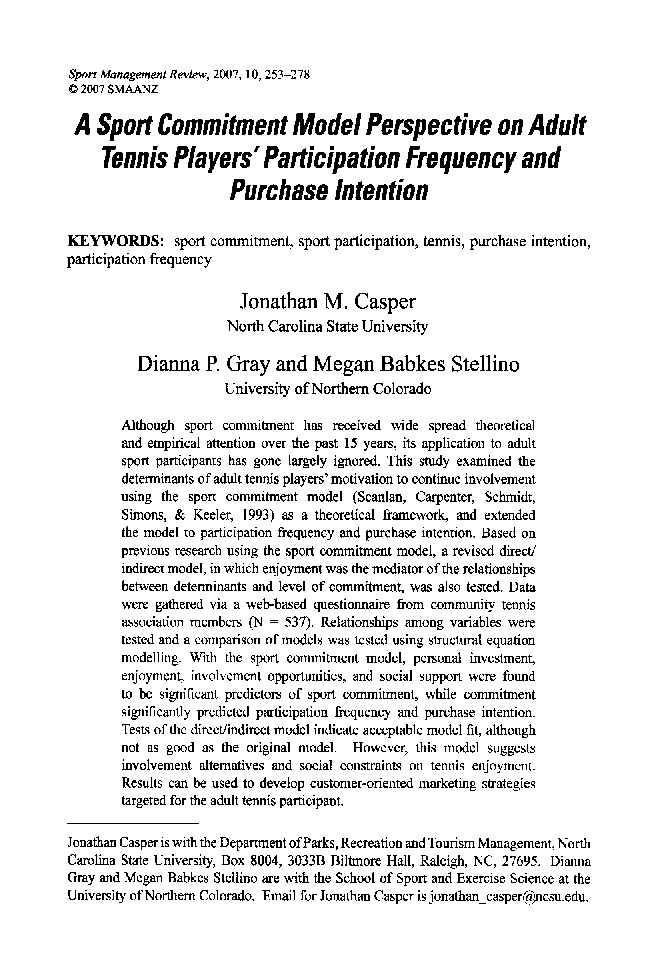| Article ID | Journal | Published Year | Pages | File Type |
|---|---|---|---|---|
| 141136 | Sport Management Review | 2007 | 26 Pages |
Although sport commitment has received wide spread theoretical and empirical attention over the past 15 years, its application to adult sport participants has gone largely ignored. This study examined the determinants of adult tennis players’ motivation to continue involvement using the sport commitment model (Scanlan, Carpenter, Schmidt, Simons, & Keeler, 1993) as a theoretical framework, and extended the model to participation frequency and purchase intention. Based on previous research using the sport commitment model, a revised direct/indirect model, in which enjoyment was the mediator of the relationships between determinants and level of commitment, was also tested. Data were gathered via a web-based questionnaire from community tennis association members (N = 537). Relationships among variables were tested and a comparison of models was tested using structural equation modelling. With the sport commitment model, personal investment, enjoyment, involvement opportunities, and social support were found to be significant predictors of sport commitment, while commitment significantly predicted participation frequency and purchase intention. Tests of the direct/indirect model indicate acceptable model fit, although not as good as the original model. However, this model suggests involvement alternatives and social constraints on tennis enjoyment. Results can be used to develop customer-oriented marketing strategies targeted for the adult tennis participant.
